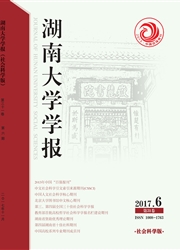

 中文摘要:
中文摘要:
作为坚定的朱子学者,朝鲜大儒李退溪平生对朱子学说的疏通与卫护不遗余力,义利说就是其中一例。退溪对朱子义利说的疏通与卫护,缘于他与门人黄仲举就前代学者朴英《白鹿洞规解》所做的讨论。向来论者都没有发现,退溪所捍卫的朱予义利说,其文本实际上是朴英从叶采《近思录集解》当中抄录的一段话。这段被韩国学者视为“朱子日”的文字系叶采综合朱子本人相关叙述以及陈淳《北溪字义》“义利”条等材料而成。从陈淳到李混,从中国到韩国,朱子学经历了一个递相祖述的过程,朱子思想因而得以发扬光大,同时,其隐含的多种可能性也得以释放,最终超越了个人知识、地方性知识,而成为东亚近世的一种普遍价值。
 英文摘要:
英文摘要:
As a firm and loyal follower of Chu Tsu School,Korean Confucian I Hwang(Toegye) tried his best to interpret and defend Chu Tsu's theories through his whole life, the doctrine of righteousness and utility is just one case.It is a pity that the researchers have not found until today that the text which Toegye used to defend Chu Tsu is actually not written by Chu Tsu himself but his second generation disciple Ye Cai.This essay reveals in details the truth and points out that Neo-Confucianism of Chu Tsu school from China to Korea is of one kind of universal value in pre-modern East Asia.
 同期刊论文项目
同期刊论文项目
 同项目期刊论文
同项目期刊论文
 期刊信息
期刊信息
